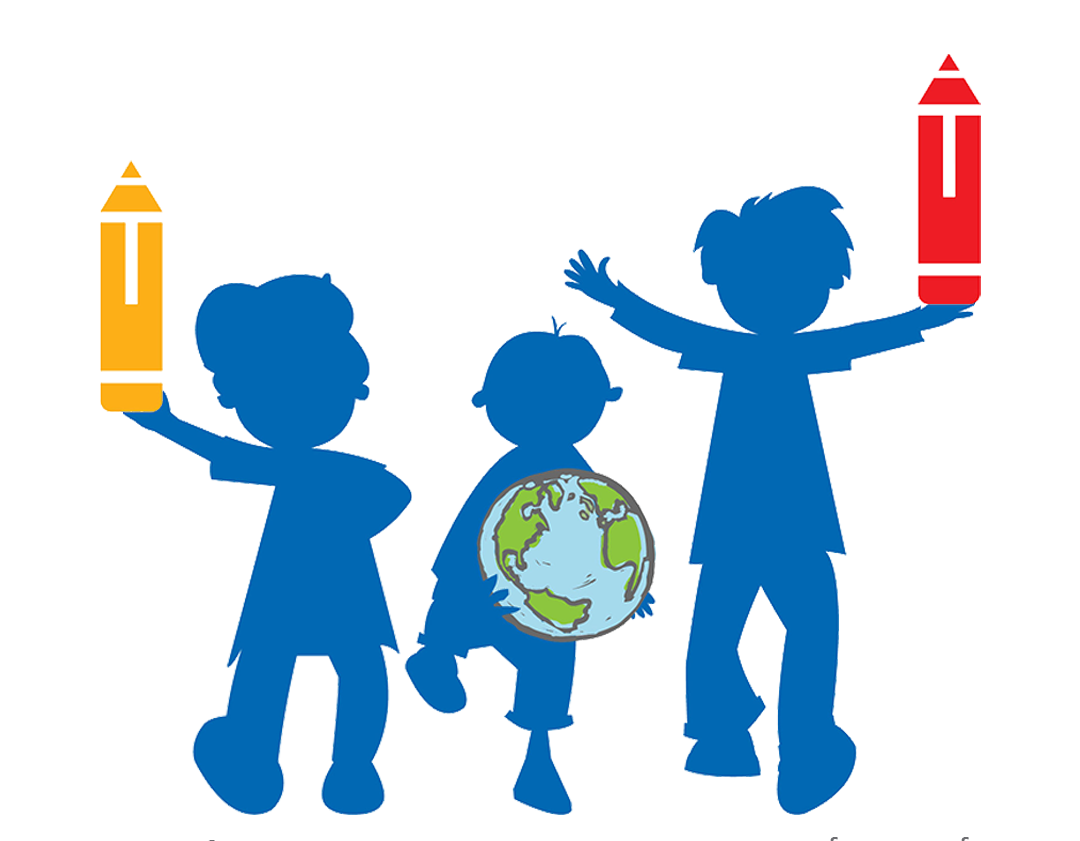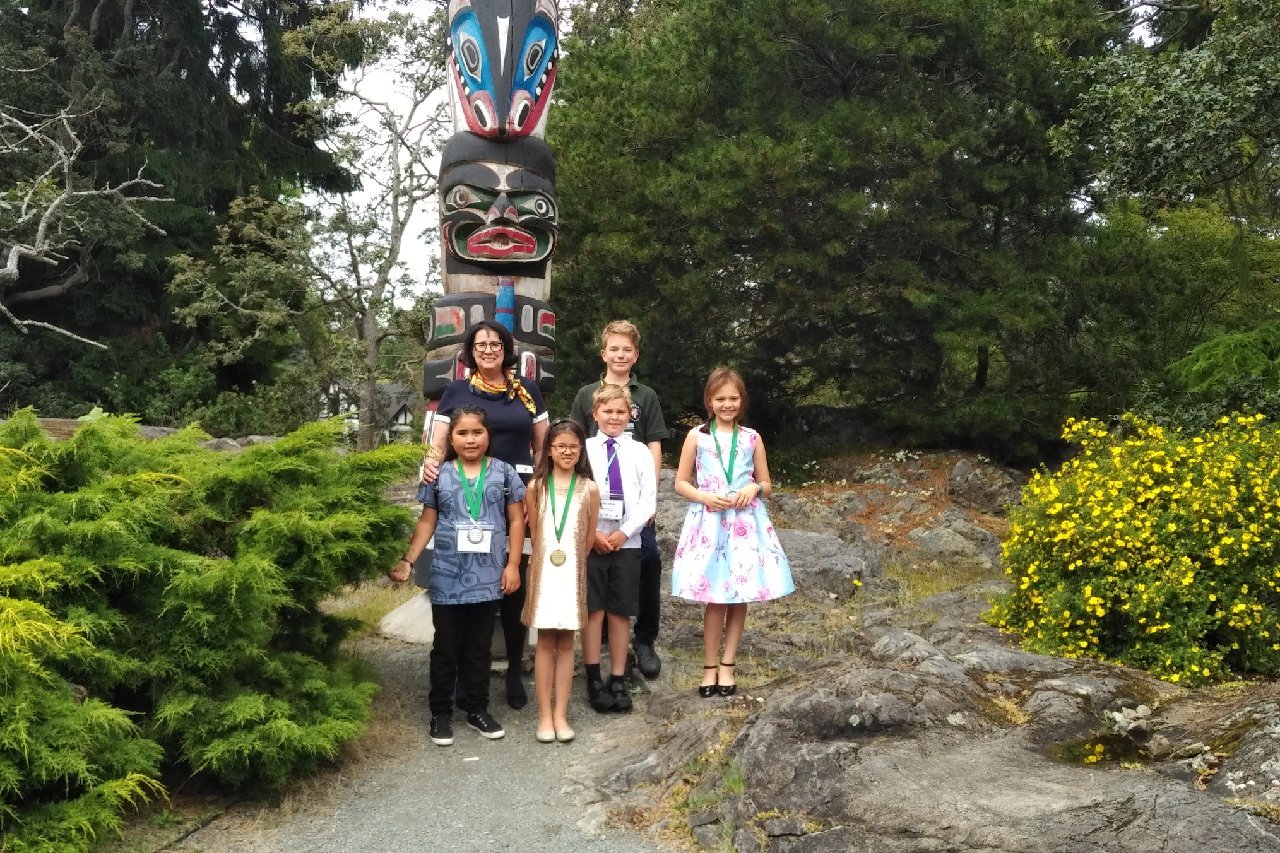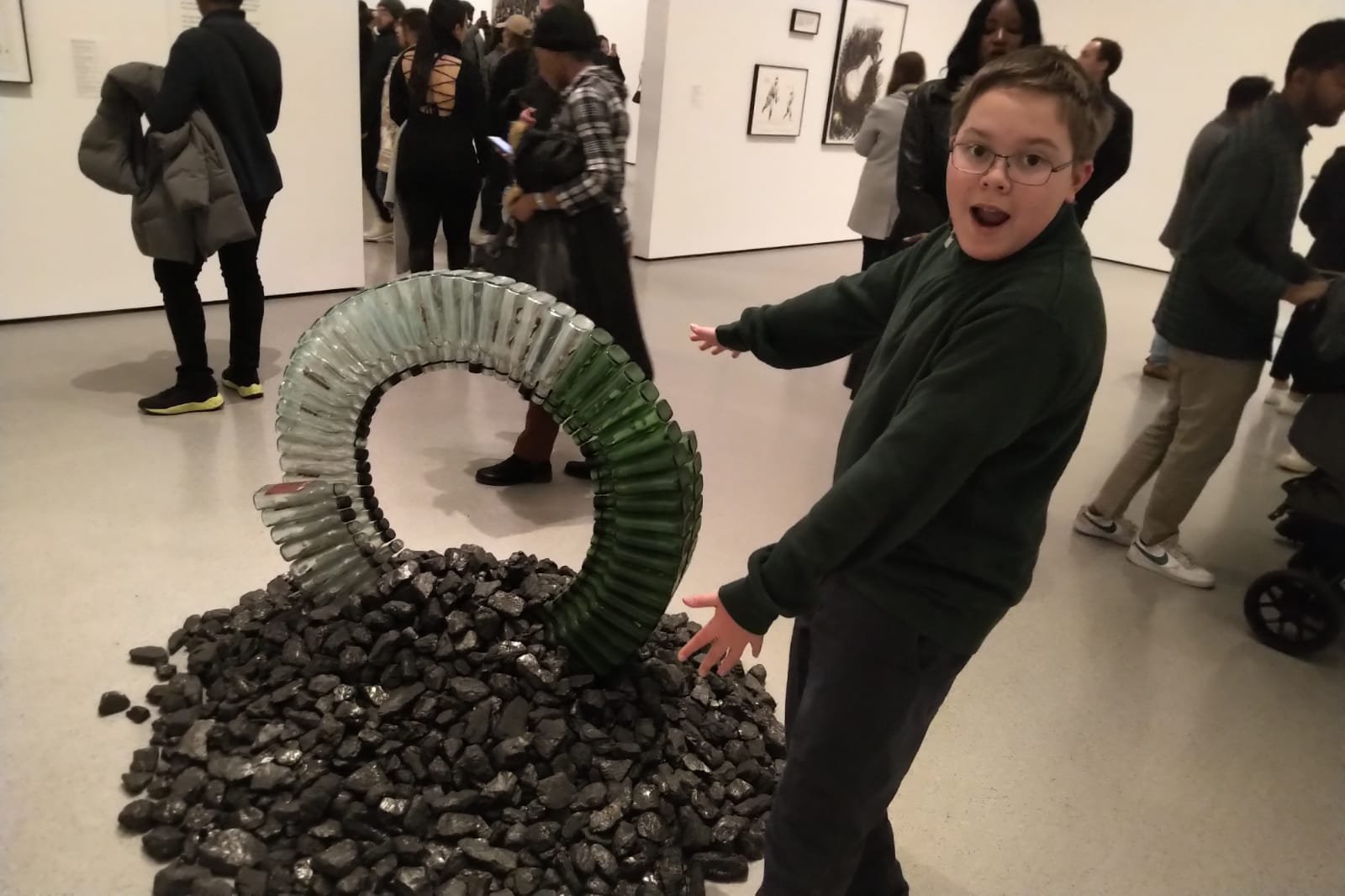Thank you very much for the opportunity to comment on the draft of General Comment 26, which will guide governments by explaining how children’s rights are related to the environment and climate change, and what they must do to protect our rights. We especially appreciated your extra effort to provide a Child-Friendly version of the first draft General Comment 26 in different languages. This has allowed us to more easily discuss your draft with the younger youth and children from all over the world in our networks, and really helps us to contribute our voices for future generations.
As child authors and child ambassadors who work very hard to raise awareness and inspire action for the UN Convention on the Rights of the Child and the global Sustainable Development Goals (SDGs), many of whom are also climate-strikers in our communities, we are very concerned about our world’s current climate change and biodiversity emergencies, and how the impacts will violate children’s rights. Through your General Comment, we hope that governments can help children and everyone to change all our ways before it is too late, in order for future generations (including our own) to hope for survival.
We feel that the General Comment first draft is a good start but could be stronger in many ways, especially by committing more clearly to non-discrimination, to prevention and to much greater ambition in climate action. You have asked us to focus on specific sections of the General Comment, and to provide our views. We are happy to do so.
Right to education (GC26 para 31 – 38)
Your General Comment 26 says: “Children should be taught environmental education that is accurate and in ways that they understand. Environmental education should support children to connect with, and respect, the environment and other human beings. The places where children learn should be safe from environmental harm.”
Many of us are able to receive some environmental education, even if information is often outdated and upsetting, so we really appreciate para 33. However, much of our current environmental education is not very focused on solutions and on how we can all contribute to children’s rights and advancing the SDGs. Our schools are the first place where many of us are trying to make a difference. In some of our schools, we have formed Sustainability Councils or Eco-Societies, then Eco-Councils of the clubs and societies. We have drafted Climate Action Plans and even helped to implement them for our schools and our communities. These small steps make a big difference to us.
Might this kind of action please be mentioned in your GC26? If at all possible, could the General Comment 26 highlight the need for education but also action in our schools, so that we do not feel hopeless and angry, but instead we can contribute to sustainability solutions.
Rights of Indigenous children (GC26 para 49)
Your General Comment 26 says: “Indigenous children’s lives, survival and cultural practices are often very connected with their natural environment. Governments should make sure to protect their rights and involve children in all decisions being made about their lives.”
We really appreciate that you highlight indigenous children’s relationships with nature, survival, and the need to stop destroying our world, especially. The indigenous child authors and child ambassadors in our networks, with all our support and solidarity, feel it is very important to also mention the importance of indigenous languages, that are at the heart of the relationship with nature. So many irreplaceable and precious indigenous languages are being lost right now – just in our generation – and with them, so much important culture and understanding of the environment and climate change is lost too.
Right of non-discrimination (GC26 para 50-51)
Your General Comment 26 says: “No group of children (for example, girls or children with disabilities) should suffer from environmental problems more than others. Governments should collect information to learn more about the inequalities between groups, and take specific actions to resolve them.”
We deeply support this point, but we also hope that you could highlight the need to find ways to involve children of all differing abilities, and children from all groups in environmental and sustainability activities. If at all possible, you could also highlight the terrible situations that are being faced by children who are losing their entire territories, countries and communities due to climate change impacts, and how unfair this is, just a bit more clearly and strongly.
Right to be heard (GC26 para 56-58)
Your General Comment 26 says: “Children should have a say on issues related to the environment and climate change, and to be taken seriously by adults. Governments and businesses should involve children when making decisions about the environment and climate change.”
Many of us are trying to have our voices heard in decision-making about climate change, biodiversity and global health emergencies, so we really appreciate paras 56 and 57. We have learned to work together online, through digital meetings, and we think it is helpful that you highlight these opportunities in para 56. We actually edit an online journal for children and youth concerned about global sustainability (harmonyyouthvoices.com) and we hope it really helps to inspire and empower youth worldwide.
While we totally agree that children and youth voices should be heard, and that we can and should participate in adult decision-making on all levels, we also think we can contribute a lot to developing and acting for solutions for children’s rights, protecting and restoring our environment, and advancing the SDGs ourselves too. Our communities are very important places where many of us are trying to make a difference. We can form Sustainability Councils or Eco-Societies in our schools, we can also create Eco-Councils or Guardian’s Networks among these clubs and societies in our communities. We have drafted Climate Action Plans and even helped to implement them for our schools and our communities as mentioned earlier. On other levels, for such councils or guardian’s networks, we do need some support and help to link us all together and connect, and also to help keep our councils or networks going year by year, with youth and children especially. It’s about empowerment and agency. Might this kind of action please be mentioned in your GC26? If there is a way to encourage youth and children organizing ourselves, we would greatly appreciate it.
Right to freedom of expression, association and peaceful assembly (GC26 para 59-61)
Your General Comment 26 says: “Children often stand up for their environmental rights as human rights defenders. Many children also spend time with friends and groups in different environments. Governments must protect children from anyone who wants to stop them from doing so.”
Thank you for including the section recognizing our rights to express our concerns. This is very, very important. Many of us are climate-strikers, and we are prevented or punished for trying to stop the actions that are destroying our Earth. We greatly appreciate that the General Comment is very clear on this. We also greatly appreciate the advocacy and hard work of the UN Special Rapporteur for Human Rights and the Environment Prof David Boyd and the others who have held this role, they have helped us a great deal and is tirelessly defending defenders.
Access to justice and remedies (GC26 para 62-70)
Your General Comment 26 says: “When children’s rights have been affected by environmental harm and climate change, children should be able to access justice – that is, solutions, support and compensation for the harm and consequences they are experiencing – at regional and international levels.”
Thank you especially for directly speaking about children and youth climate justice cases, and our access to courts and remedies. We really appreciate this aspect of our friends’ efforts being highlighted, and feel it can make a real difference if children and youth can use our justice systems to advance change. It might be good to highlight indigenous laws and governance systems, as many of these justice systems are so important for the environment, the natural world and climate change. We strongly support the efforts of youth, academic leaders, governments and others to request an Advisory Opinion in the International Court of Justice, and in other courts including the Inter-American Court of Human Rights, and we hope that this General Comment can be understood to strongly support it too. In such a high-profile and symbolic case, an Advisory Opinion can bring our entire future to the world’s attention, and that is desperately needed.
Right to a clean, healthy and sustainable environment (GC26 para 71-74)
Your General Comment 26 says: “While this right is not directly included in the Convention, the Committee explains that children have the right to a clean, healthy and sustainable environment. Children need a clean environment in order to enjoy all of their human rights. Children should have access to clean air and water, safe climates, healthy ecosystems and biodiversity, healthy food and non-polluted environments.”
Thank you for including the section recognizing our rights to a clean, healthy and sustainable environment. This is very, very important to us all. We agree that action needs to be taken immediately on all fronts to protect and realise this right for children. We understand that you might need to ask to ‘phase out’ fossil fuels (para 73 d), but many of us who are climate-strikers feel very, very strongly that it is already nearly too late, and all fossil fuels need to be banned as soon as possible. It is crazy that current generations of adult are still allowing our energy to be coming from non-renewable sources that poison our Earth, and this has to change immediately.
General Comment 26 Section V (GC26 para 75-81)
Further, we really appreciate that the General Comment includes how States should ensure a clean, healthy and sustainable environment in order to respect, protect and fulfil children’s rights, focusing on their obligations.
Thank you for including this section – it is very important. We were a bit confused by the part in para 76 about ‘paying due regard’ to the precautionary approach. Would it be possible to make this stronger and commit to the precautionary principle for all children and for nature directly? We also strongly support the call for laws and policies. If possible, could these laws and policies clearly refer to environmental health, safety and also sustainability? The SDGs are very important to us, and where international guidelines exist, they should all be respected. New guidelines and treaties are also needed in some areas, like to stop plastics from destroying our natural world.
General Comment 26 Section VI (GC26 para 98-123)
Finally, we deeply thank you for including such a long and careful section on the responsibilities of governments to take action on climate change. However, we feel that since the global Biodiversity Emergency, globally, is just as serious and equally terrible, impacting millions of species that our generation, and all future generations, might lose forever, and never even know about. You do mention that climate change is devastating biodiversity, and you mention the rising problems of biodiversity loss and destruction of nature in your discussions of some of the children’s rights, but we believe that right before or after the sub-section on Business and climate change (D, para 114-118), a new section should be inserted recognizing the need for urgent action to protect nature and biodiversity in the interests of current and future generations. This section can refer to some of the commitments agreed in Montreal during the Convention on Biological Diversity’s COP15, especially the important promises in the Global Biodiversity Framework to look for ‘nature-positive’ solutions to climate change and biodiversity emergencies, and to protect much more of land and sea for current and future generations. As another idea, you could do a second General Comment specifically on biodiversity, even though we do think that the advice could be stronger and clearer (and more interconnected) if it was included here. (For more on children, youth and the GBF, please see Nico’s Natural World blog – nicosnaturalworld.org).
We hope that this contribution is helpful, and again, really appreciate the opportunity to comment on your Draft General Comment 26.
Yours sincerely,
Nico Roman (13, of UK, Canada, Germany and Switzerland)
YR9 Scholar of Winchester College, UK; Co-Chair of the Cambridge Schools Eco-Council; Child Ambassador of the Voices of Future Generations Children’s Initiative; and Junior Editor of the Global Youth Council on Science, Law and Sustainability online journal Harmony.
To read other posts by Nico Roman go to https://nicosnaturalworld.org/
Background on the Voices of Future Generations Children’s Rights Initiative consultations among child authors, child ambassadors and friends from different countries and regions.
Who are we, and how are we consulting among our networks?
Our consultations are taking place online between December 2022 and February 2023, engaging children and youth leaders from the Voices of Future Generations Children’s Initiative network from Australia, Austria, Canada, China, Democratic Republic of Congo, Germany, Ghana, Kenya, Mexico, South Africa, Switzerland, the United Arab Emirates, the United Kingdom, the United States of America, Uruguay, Zambia, Zimbabwe and other countries (www.vofg.org), also indigenous children and youth from their territories and nations. Many of us are boys and girls involved in creating stories, artwork, music and drama about protecting our earth, climate chante and sustainability, we also serve as child leaders of eco-councils and other student clubs in our communities, and we range in ages from 7-8 years old (new members) to 17-18 years old (alumni). We have also posted our comments on Nico’s Natural World, a blog led by the student who prepared this comment (nicosnaturalworld.org), and on our online journal (harmonyyouthvoices.com)
The Voices of Future Generations Children’s Initiative (VoFG CI) is a movement on children’s rights and sustainable development. VoFG CI is a unique programme of action that empowers children to promote the UN Convention on the Rights of the Child (CRC) and the Worl’s Sustainable Development Goal agenda (SDGs). Our mission is to assist children to advance the right to education and literacy globally through the children’s book series. Books are authored by children aged 8-12, for children aged 6 and above. These stories from around the world are illustrated and published, and the books disseminated globally to schools and libraries for all children to benefit from the knowledge and insight. Through our Intergenerational Dialogue Programme, Online Roundtables and Eco-seminars we enable children to enter into effective and inspiring communication with experts and global leaders, who are effecting positive change in the fields of children’s rights and sustainable development.








